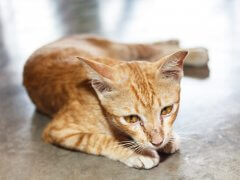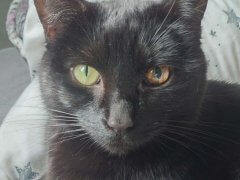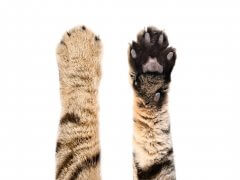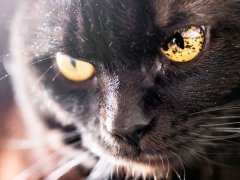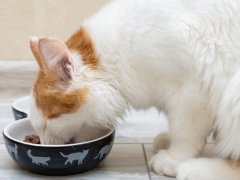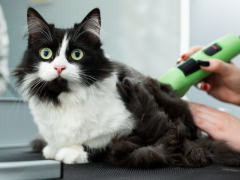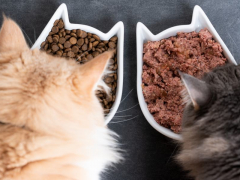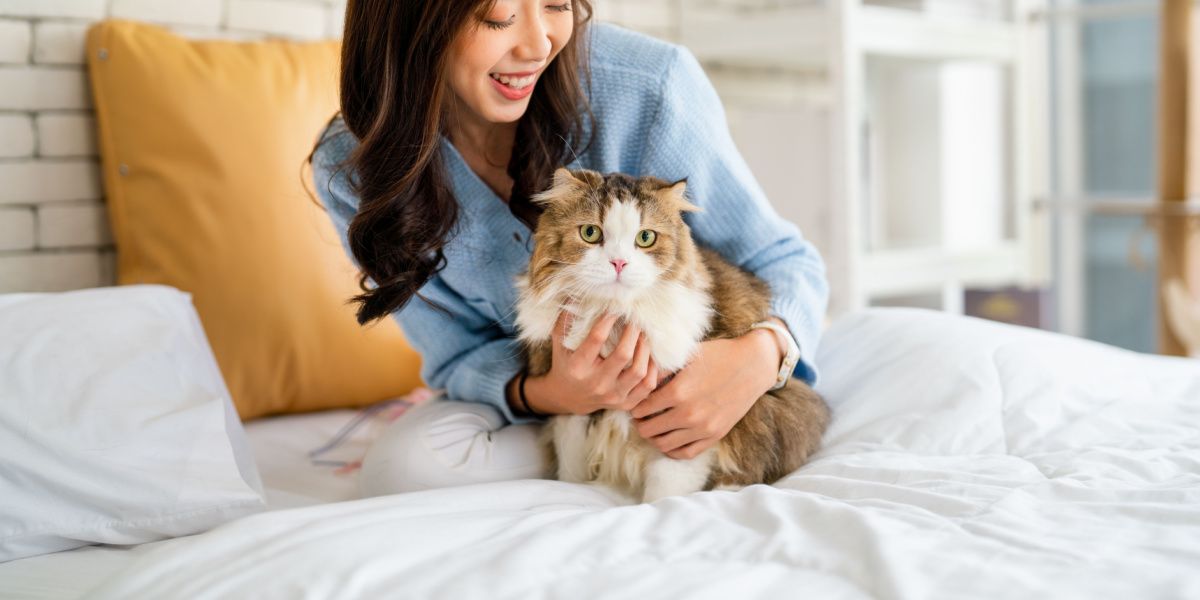
This article aims to explain the details of pneumonia in cats, a common and serious respiratory tract disease. The aim of this article is to provide a simple, clear explanation about pneumonia for cat owners.
Quick Overview: Pneumonia In Cats






What Is Pneumonia?
Pneumonia is defined as inflammation of the lungs, with fluid and inflammatory debris gathering in the air sacs (alveoli).
How Common Is Pneumonia?
Pneumonia is rare in cats that are fully vaccinated and otherwise in good health, but it is common in young kittens, elderly and weak cats, as well as those with any type of issues with their immune system (such as FeLV, FIV and other concurrent conditions).
How Do Cats Get Pneumonia?
Pneumonia is caused by initial damage to the lungs which is then aggravated by complications such as bacterial infection.
Pneumonia is more likely to develop and progress if a cat’s natural immune system is unable to effectively ward off either the primary cause (such as a virus or the substance causing aspiration pneumonia) or the secondary bacterial pneumonia complications. This is why the disease is more common in senior cats, and small animals such as kittens.
Symptoms of Pneumonia in Cats
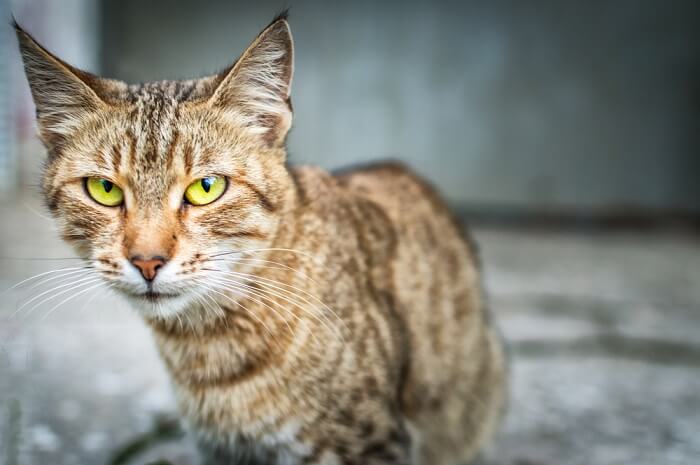
Counterintuitively, a good number of cats with pneumonia don’t have breathing difficulties at all. Instead, they present as simply “sick cats”.
As a lung disease, it might be expected that breathing difficulties would be the main feature of pneumonia in cats. While this is often the case, 20 – 60% of cats do not show signs of their breathing being affected, simply presenting as “sick cats”.
Typical signs of pneumonia include fever, dullness, inappetence, weight loss and unwillingness to move around. Other common signs include coughing, dyspnea (difficulty breathing), tachypnea (rapid breathing), a yellowish nasal discharge and cyanosis (a bluish-purple color of the gums caused by poor oxygenation of the tissues).
Dehydration is a common feature, due to lack of fluid ingestion (reduced eating and drinking) as well as higher loss of water vapor from the body due to increased rate of breathing. You may noticed reduced drinking from your cat’s water bowl and less use of the litter box.
Some cats with feline pneumonia may have difficulty swallowing, due to the changes inside the chest.
Rarely there may be other signs of systemic bacterial infection, such as lameness and skin problems.
Causes of Pneumonia in Cats
The most common causes are viral infections, bacterial infections (such as bordetella), fungal infections (mycotic pneumonia), protozoa, and parasites. Inhalation of smoke, or aspiration of food or fluid (e.g. liquid medications), can also lead to pneumonia.
Common respiratory infections include feline calicivirus (FCV), feline herpesvirus (FHV), as well as feline infectious peritonitis (FIP). Furthermore,. cats with feline leukemia virus (FeLV) and feline immunodeficiency virus (FIV) infections are more likely to develop pneumonia.
Bacterial complications can be caused by many microorganisms, including bordetella, mycoplasma, and pasteurella.
Diagnosis of Pneumonia
If your DVM veterinarian suspects that your cat may have pneumonia, the following steps may be taken.
1. Detailed History Taking
Your vet will discuss every aspect of your cat’s condition and overall health care. There are other causes of the same types of signs as pneumonia, and this history will help to differentiate the various possible causes.
2. Physical Examination
Your veterinarian will check your cat over carefully, checking for the signs of pneumonia listed above. Your vet will also carry out auscultation of your cat’s chest (listening with a stethoscope) checking for increased lung sounds, such as wheezes, crackles and hisses.
In some cases, the normal sounds of breathing may be reduced due to consolidation of the lung tissue caused by the accumulation of inflammatory debris and fluid. Your vet will also assess your cat’s heart rate and sounds. Other complications (such as any skin lesions) will also be assessed carefully.
3. Routine Blood Tests
It’s very likely that your veterinarian may carry out other blood work, including the usual panel of diagnostic tests, such as hematology (blood count) and biochemistry profiles. Typically, but not always, a raised white blood cell count (leucocytosis) may be seen.
4. Specialised Blood Tests
Your veterinarian may recommend specific blood tests for some viral infections such as FeLV and FIV, since there are significant implications if your cat is positive for either of these.
5. Other Tests
Radiography (x-rays) may be taken: a characteristic patter of changes in the lungs is usually seen, with increased opacities, and specific patterns suggesting infiltration of the air sacs with fluid and inflammatory debris. Further tests such as a tracheal wash and culture of samples may be suggested. Pulse oximetry may be suggested as a way of monitoring your cat’s tissue oxygen levels.
Your veterinarian will advise you on which detailed investigations are needed.
How Much Does It Cost To Treat a Cat With Pneumonia?
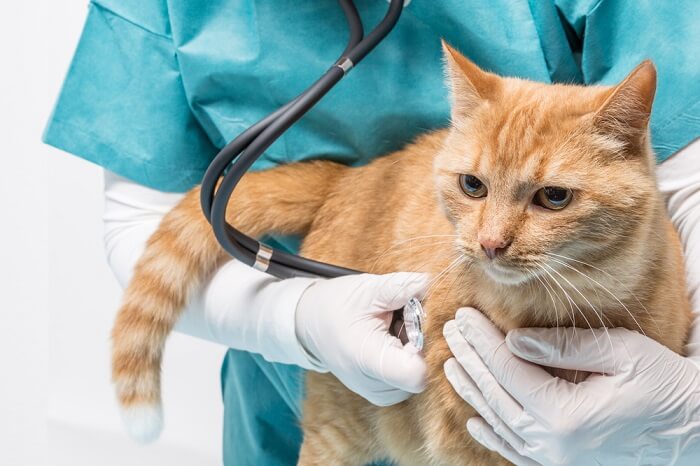
The cost of pneumonia treatment is varied and depends on a wide range of factors.
It is impossible to estimate this cost, as there are so many possible factors going on in the background of individual cases. You should ask your veterinarian for a detailed estimate before agreeing to proceed with treatment. Costs could vary from €400 (about $476) for a simple case to €4000 (about $4760) or more for an exceptionally complex case of pneumonia.
Treatment for Pneumonia
- The primary treatment is the administration of antimicrobial medication (broad-spectrum antibiotics) to kill the bacteria which commonly cause the most severe signs of pneumonia. Most patients (and all severe cases) require hospitalization so that the optimal levels of antibiotics can be achieved, along with close monitoring and other ancillary therapy.
- Oxygen therapy (via an oxygen cage, tent, or mask) is often given to help cats breathe more comfortably.
- Nebulisation may be used to allow the direct penetration of medication such as antibiotics to the affected airways including the trachea and bronchi, as well as the alveoli.
- Intravenous fluid therapy is often given, as dehydration is a common feature of pneumonia, and this aggravates the illness by reducing the clearance of inflammatory debris from the airways.
- As well as these general treatments, if there is a specific underlying cause such as parasites if these are involved (i.e. anti-lungworm or fluke medication), or if there are fungal infections such as in fungal pneumonia (i.e. anti-fungal medications).
Monitoring and Prognosis
As well as frequent physical rechecks, repeated radiographs may be taken to monitor the changes on chest x-rays. Around 90% of cats make a full recovery from pneumonia, but the outcome depends on the type of pneumonia and the overall underlying health of the patient.
Conclusion
Pneumonia is a serious lung disease that can affect cats. Careful attention to a cat’s overall health, including regular vaccination of cats to protect against viral causes, is important to help to prevent the disease, and prompt veterinary care is important if a cat does develop pneumonia.
Frequently Asked Questions
What can cause pneumonia in cats?
Pneumonia in cats can be caused by viruses, bacteria, fungal organisms, protozoa and parasites, as well as smoke or the inhalation of foreign material (such as food or fluid).
How do I know if my cat has pneumonia?
The main sign, as listed above, are dullness, inappetence and reduced activity, as well as coughing, difficulty breathing, rapid breathing, nasal discharge, and cyanosis (bluish colour of the gums). If your cat shows these signs, you should take them to your vet who will carry out further tests to establish if the cause is pneumonia.
Can a cat survive pneumonia?
Around 90% of cats recover from pneumonia when comprehensive treatment is given, but this is a serious disease, and without treatment, the mortality rate is very high.
Is cat pneumonia contagious to other cats?
The infectiousness of pneumonia in cats depends on the primary cause e.g. cat viruses are highly contagious, while if the cause is inhalation of food or smoke, the pneumonia will not be infectious. You should ask your veterinarian about your particular cat.
How serious is pneumonia in cats?
This is a very serious and life threatening disease, requiring urgent and comprehensive veterinary treatment.
